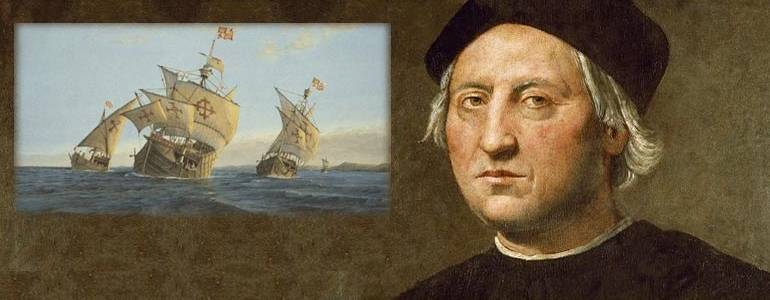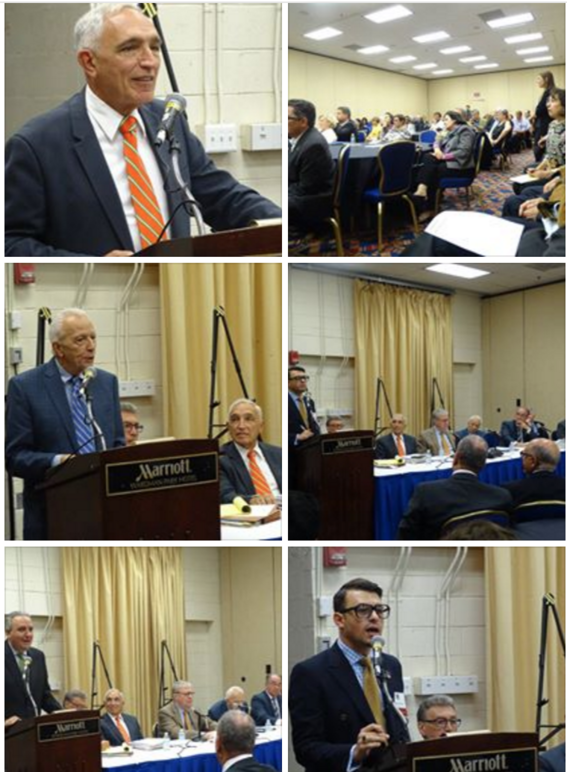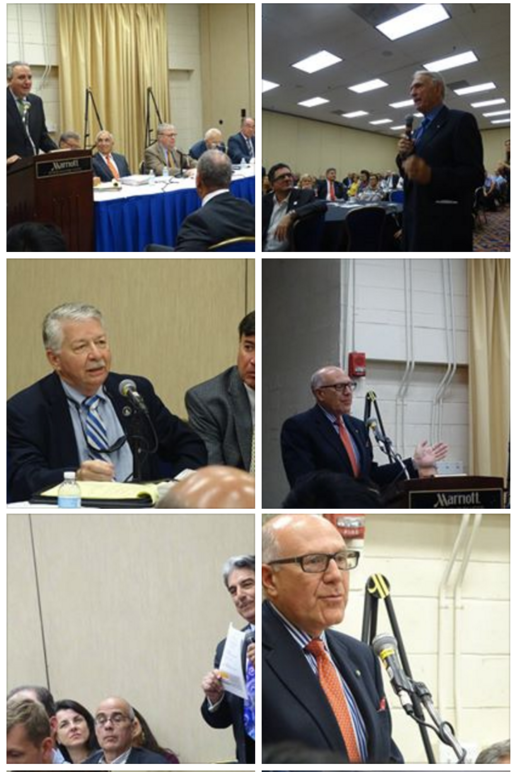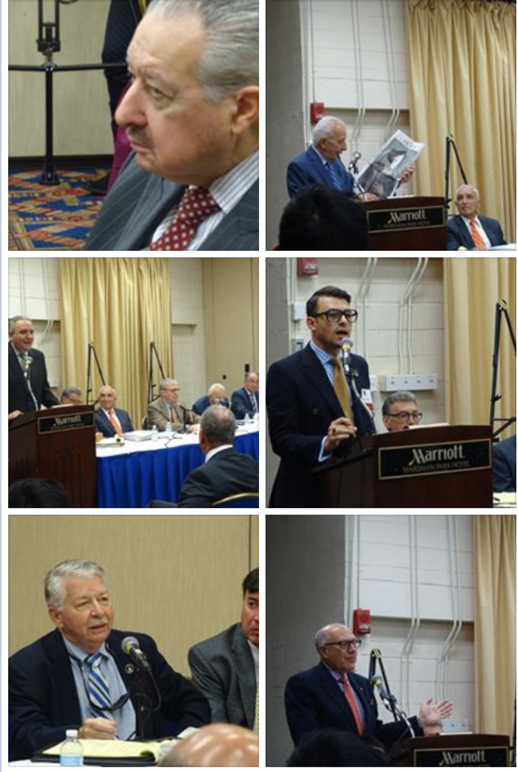Italian Americans and the Future of Columbus Day
At the recent weekend-long celebrations for the 40thAnniversary of the National Italian American Foundation in Washington, DC, a very unusual public forum was held on the Future of Columbus Day.
Leaders of the Conference of Presidents of the Major Italian American Organizations met in a crowded hall to talk as well as to listen— seeking a common strategy to deal with the issue. Until a few years ago, such delicate matters were discussed behind closed doors; by contrast, this public discussion revealed a fresh spirit of openness recently brought to NIAF by a new generation of leaders in their thirties, as embodied by President John M.Viola.
Our interviewee John F. Calvelli could perhaps be seen as a bridge between two generations of italian-Americans, facilitating the transition from past to future. Mr. Calvelli is the Executive Vice President of Public Affairs for the Wildlife Conservation Society.
Prior to that, he served as the senior staff person to Congressman Eliot Engel (D-Bronx) in Washington, DC. The son of immigrants from Calabria and a graduate of Fordham University, he is a member of the NIAF board of directors and Executive Vice President and Chair of the Italian American Leadership Council. Mr. Calvelli is widely credited with being an influential advocate of Italian American interests at the national level.
What is at issue with he debate over Columbus Day? What are the positions in the Italian-American community, and what’s yours?
The conversation at the NIAF weekend meetimg in October really helped raise awareness within the leadership of the community, about the deep beliefs that exist within the community.
And I think they spanned the whole gamut. On the one hand there was a sense that Columbus Day should be eliminated as an Italian-American holiday.
And it was interesting to hear that perspective from those who say “Look, we have so much to offer as an Italian-American community, we have so much that we’ve done, why are we holding ourselves accountable for the dreadful acts of Christopher Columbus? We have so many other ways: let’s celebrate Dante’s birthday, Da Vinci’s birthday.” I think this is probably most prevalent in the younger community—and I think that is shame on us.
We have stood by and allowed other people to define Columbus. On the other extreme are those who say we should, as we say in English, “double down,” and we make sure that we continue to support this holiday, that we make it even more Italian, that we make sure that people don’t forget the important role that Columbus played as an Italian.
People who stand by this position probably tend to be of the older generation, those maybe less amenable to change. And then, you know, betweenthesepositions therearemany different positions, and one that is really a little bit outside of that spectrum, which is my position, is that in a sense we kind of forget what Columbus Day was about.
I heard you expressing it at the NIAF forum and I thought it was a very well thought of point—not just a middle-of-the-road compromise, but a fresh new look at the whole matter, an innovative one. Would you elaborate a little more for our readers?
What I think is that we should always remember this started as a non-Italian holiday, it started as a holiday to celebrate the explorer and his mission of discovery, and the fact that he helped to bring Christianity to this country (that was one of the major issues with his arrival), but there was also this idea that America and what he did represented a new age of discovery and opened up what was the “Columbian exchange.” The exchange of goods and resources between two great continents, the Western hemisphere and Europe.
So that’s the core. From a political perspective, it became Italian because Roosevelt was looking for Italian-American votes in the thirties, and wanted to tie this holiday to the Italian-American community that was looking for symbols at time when they were in many ways an oppressed immigrant community. Therefore, they took pride in Columbus, and they took pride in what he stood for and the respect that he was given within the larger American society.
Now, fast-forward fifty years, and Christopher Columbus has become the villain, imbued with all of the negativity of the Columbian exchange. He is being blamed for slavery, for the diseases that came about, for the deaths of Native Americans. In a sense, he is being blamed for everything that was wrong with the 16th century. And at some point we need to step back and realize that he was indeed a product of his time. You cannot hold Christopher Columbus accountable using a 21st-century morality. You shouldn’t take him out of his historical context. Would we do that to George Washington? Thomas Version P { margin-bottom: 0.08in; } Jefferson?
They both owned slaves! Are their names any less esteemed because they were living within a certain set of moral principles that was peculiar to their times? What else would you see in him other than, say, either a great Italian explorer to be honored or, a slave-hunter responsible for all the sufferings of the continent he discovered? From my personal perspective, we should have a balanced position.
Yes, let’s honor what Columbus did, and let’s honor the legacy of his exploration. But, fundamentally to me, let’s realize that Christopher Columbus and his vision, opened up this country to literally millions of immigrants and this created the greatest experiment for democracy and liberty that the world has ever known. If you look at things in this perspective, you see that this is a day where we should be celebrating not just Italians, but all immigrants. If you go back and read what P { margin-bottom: 0.08iPresident Kennedy had written, for instance, it was a date to celebrate immigrants, all of them. Obviously, the Italians, because Columbus is Italian, maybe at the lead, but it was really all about immigrants. Somehow we have walked away from those original concepts. So let’s go back and look at this from a holistic perspective, as opposed to the very narrow vantage points of a vocal minority trying to portray Columbus in a negative way.
Besides, if Columbus Day were to be renamed Italian Heritage Day, if it weren’t any longer just about Columbus and the discovery of America, how could it be a national holiday?
You are absolutely correct. If we allowed this to happen, the holiday would be gone!
What’s your opinion about why this decadeold discussion is taking off again today? It is because of the wording of the latest Obama proclamation?
I think what President Obama tried to do was to give a balanced portrayal of the issue. And I think when you look at the whole text what you see is, obviously, praise for the Italian American community, and praise for Columbus, but also that this is a day that is looked on by Native Americans in a negative way.
Now that is factually correct: when you speak to Native Americans, many feel that way. Now, having said that, Native Americans have a month, which is November, when they celebrate their heritage. As a matter the fact, this past Saturday was National Bison Day, one of the days within the month of November where they celebrated Bison, which for religious and cultural reasons is a very important animal for that community.
But the bottom line is that November is Native American Month. So if you want to have an indigenous people’s day, they have it already.
Do you see a chance to unite the Italian-American community around a common position on this subject?
I am cautiously optimistic that we can. You know, there is a broad spectrum of people looking for leadership to help resurrect the good name of Christopher Columbus, and help put Columbus in context. Personally I feel that we need to come together as a community and reach out to other ethnic communities that share our love for this country, and realize that America has given so much to all immigrant communities. And that happened because of Columbus. After all, in many Hispanic communities, and many West Indian communities, he is still seen in a very very positive light. So this is a real opportunity for us to cross the immigrant spectrum and say, “Come with us on this journey together to celebrate Columbus and the greatness that is America.”
Have you had any discussions with Italian authorities?
Are they helping, advising, or anything? No, you know, we have not had these conversations. In years past, the Italian government has always been supportive of Columbus celebrations. But I think everybody has not grasped the significance of what is going on today. And I worry that we are losing a moment to educate the public. We need to have this conversation not only among ourselves but with educators, with school boards. This is a conversation that needs to go across the United States. And yes, it should be understood in Italy, too.





































i-Italy
Facebook
Google+
This work may not be reproduced, in whole or in part, without prior written permission.
Questo lavoro non può essere riprodotto, in tutto o in parte, senza permesso scritto.